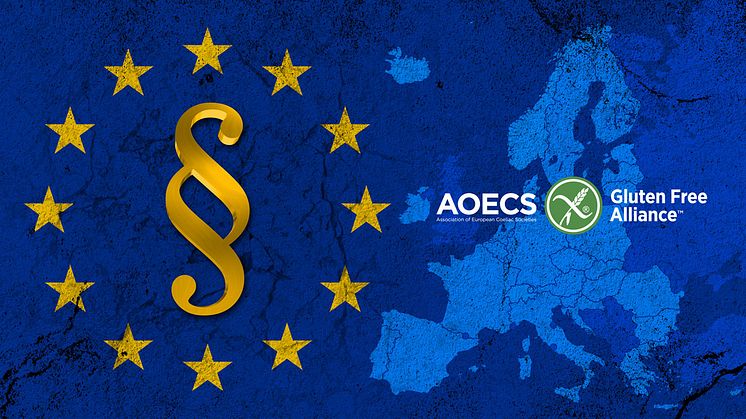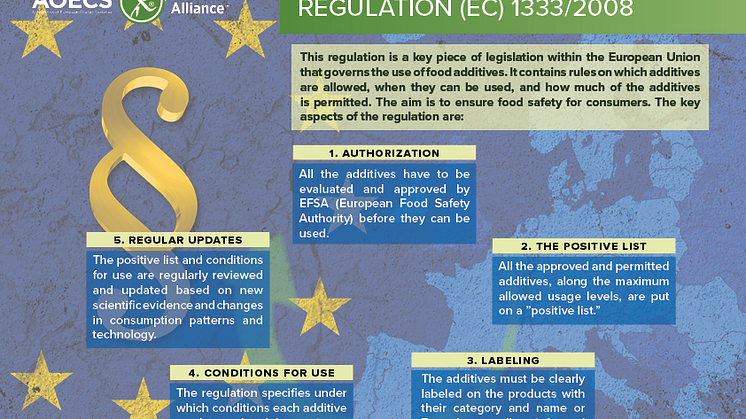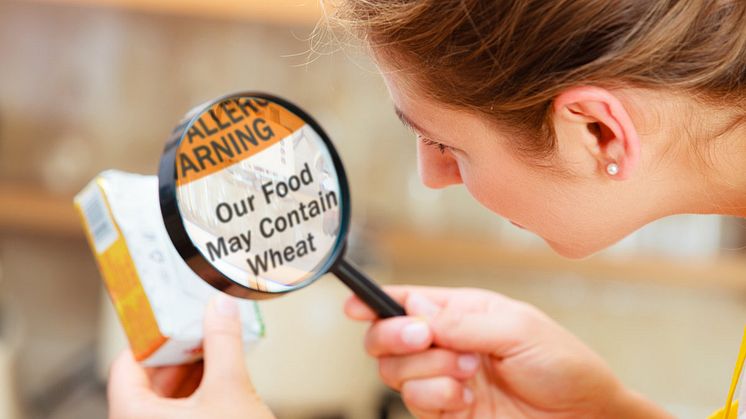
Press release -
AOECS seeks clarification on EU Food additive regulation changes
AOECS requests clarifications from the European Commission regarding a modification of the regulation for use of additives in food.
The Association of European Coeliac Societies (AOECS) has reached out to the European Commission seeking details about proposed changes to Regulation (EC) No 1333/2008, which pertains to food additives.
This regulation outlines the rules concerning which additives can be used in foods, the conditions for their use, and the specific foods in which they can be employed. The regulation aims to ensure food safety and protect consumer health by controlling the addition of substances that have technological effects on food (e.g. additives that mimic the texture that gluten provides).
The changes to Regulation No 1333/2008 include restructuring food category 13, aligning it with the newer Regulation (EC) No 609/2013, and shifting gluten-free products from category 13.4 to a new category 18.2 as outlined in Regulation (EU) No 828/2014. This new category would continue to regulate "foods marketed as 'gluten-free' or 'very low in gluten'."
AOECS accepts the EU proposal to create a new category, but our main concern is ensuring that the current authorization for additives in gluten-free products remains unchanged under the new categorization. Discussions on these amendments are ongoing, with no final agreement yet.
Related links
Topics
Categories
The Association of European Coeliac Societies (AOECS) is an independent, non-profit umbrella organisation of over 40 member and affiliated National Coeliac Societies. Together with our members, we represent people affected by coeliac disease or dermatitis herpetiformis across Europe and beyond.
We are involved in several international initiatives to raise awareness of coeliac disease, gluten free diets, and encourage research into coeliac disease early diagnosis, patient’s quality of life and cure.




